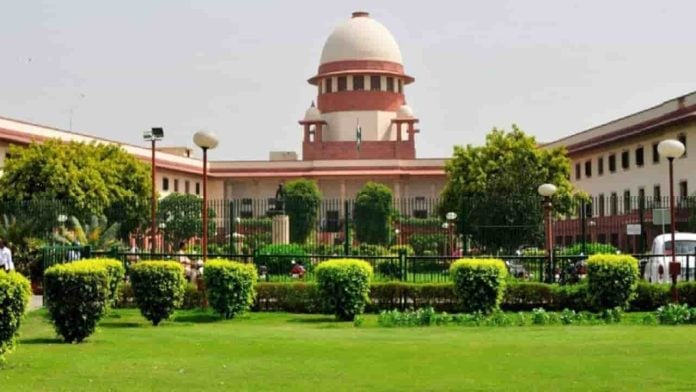The Supreme Court has ruled that a public servant can be held guilty under the Prevention of Corruption Act based on circumstantial evidence. It further added that direct evidence of demand of bribe is not necessary to convict a public servant under the Act.
A Constitution Bench comprising Justice S Abdul Nazeer, Justice V Ramasubramanian, Justice BR Gavai, Justice AS Bopanna, and Justice BV Nagarathna said that even if the direct evidence of the complainant is not available, owing to any reasons, there can be conviction of the public servant under the PC Act, if the demand for illegal gratification is proved through inferential evidence based on circumstances.
Senior Advocate S Nagamuthu represented the lead appellant in the case. Additional Solicitor General Jayant Sud appeared for the prosecution
The Court held that if there is an the absence of evidence of complainant (direct or primary), it is permissible to draw an inferential deduction of culpability,” the Court held.
The Court however added that foundational facts have to be proved in the cases.
The Court further said that in order to prove the demand and acceptance certain aspects have to be kept in mind like incase someone offers bribe without any demand by public servant and the latter simply accepts the illegal gratification, it is a case of acceptance as per Section 7.
The Court further said that in case a public servant makes a demand which is accepted by the giver, it is a case of obtainment. In both cases, the offer and demand have to be proved by the prosecution as a fact in issue.
The Court added that mere acceptance or receipt of an illegal gratification without anything more would not make it an offence under Section 7 or 13(1).
The bench also clarified that there was no conflict in its earlier three-judge bench decisions which gave rise to the Constitution bench.
On November 22, the Court had reserved its judgment in the matter dealing with the question that in absence of evidence of complainant/direct or primary evidence of demand of illegal gratification, is it not permissible to draw inferential deduction of culpability/guilt of a public servant under Section 7 and Section 13(1)(d) read with Section 13(2) of Prevention of Corruption Act, 1988 based on other evidence adduced by the prosecution?
Need for a 5 judge bench came in fore when a 3 judge bench said that there is a conflict of law in the issue regarding the nature and quality of proof required to sustain a conviction for the offences under Sections 7 and 13(1)(d) read with Section 13(2) of the Prevention of Corruption (PC) Act, when the primary evidence of the complainant was unavailable.
Two of the older cases were compared for this matter P Satyanarayana Murthy vs District Inspector of Police, State of Andhra Pradesh and Another and M Narsinga Rao vs State of AP.
In the Satyanaryana Murthy case, the Court had held that, in the absence of primary evidence, inferential deductions to sustain a conviction was impermissible in law.
In Narsinga Rao, the top court had sustained convictions despite a lack of primary evidence by relying on other evidence.
Several appeals under the PC Act had subsequently been adjourned by the top court citing the pendency of the present reference.


